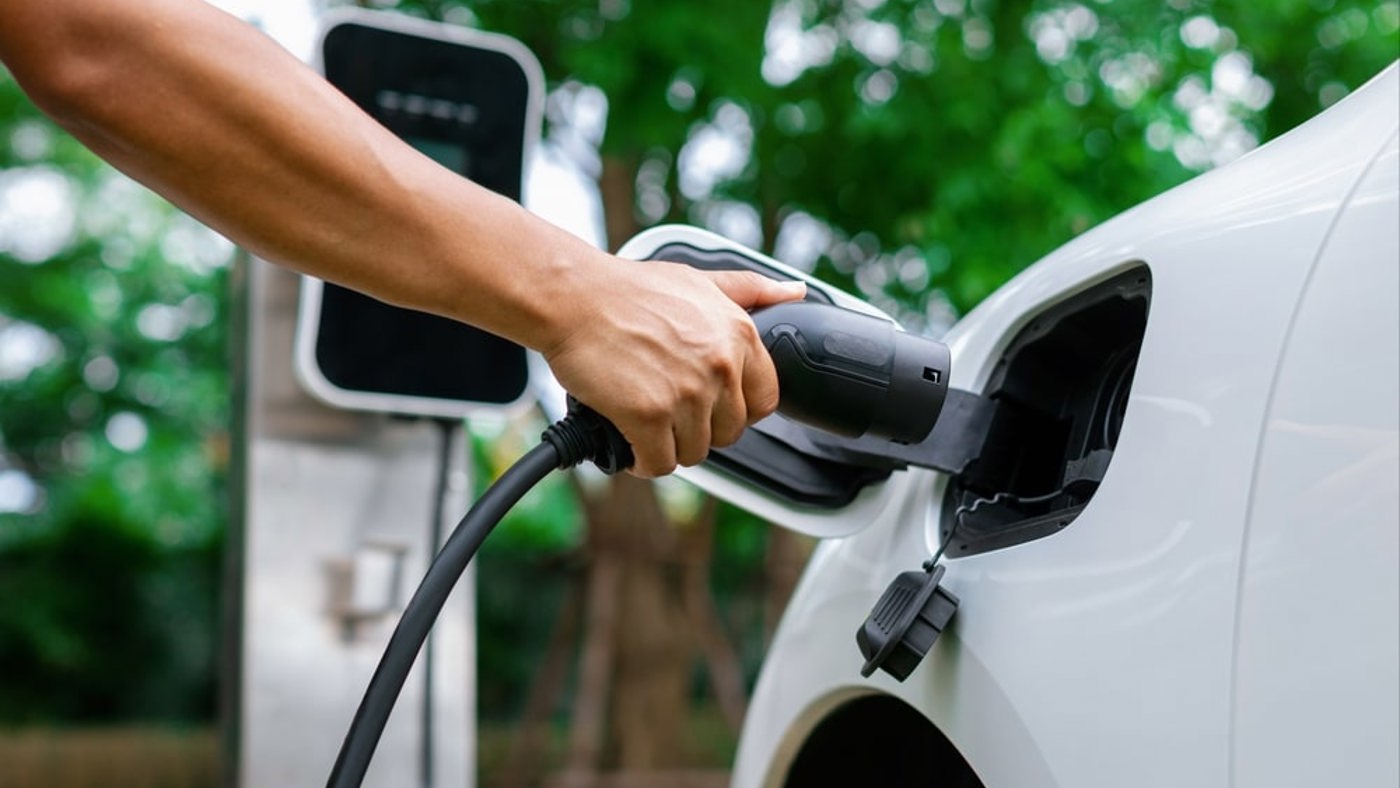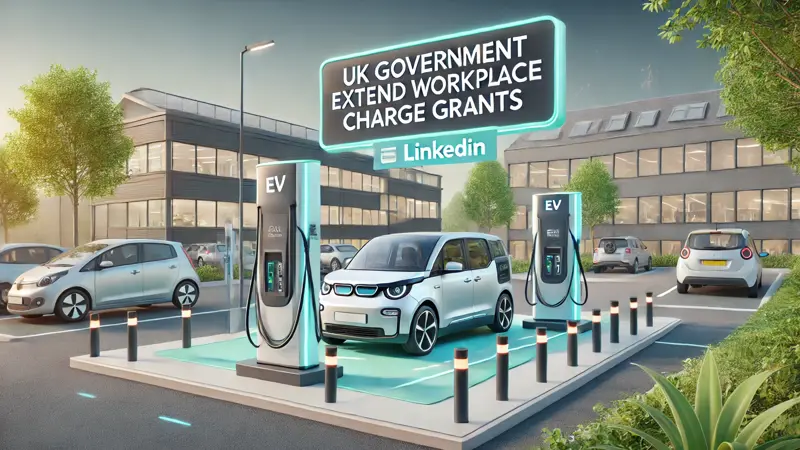
EV News Round-Up: New UK Cars 2024 & April Fools Recap
April Fools round-up: “Electric cars’ shrink problem”, and chargers on the moon
To start our recap of this week’s biggest EV news, we thought we’d compile some of our favourite EV-related April Fools Day posts.
First off, we cover the article clipping shared by EV journalist Gill Nowell, explaining the ‘EV shrinking problem’. The columnist reported on how the ‘electric waves’ generated by electric vehicles are causing the planet to ‘shrink’ at an alarming rate, with expert insight added by astrophysicist Jim Beam’. We’re not sure how many fell for that one, but it amused us.
Elsewhere, EV influencer ‘The Plugseeker’ had a dig at the lengthy wait times on some Chinese-manufactured EV models, posting this obviously photoshopped snippet of the HiPhi X model on their Twitter page announcing an imminent review.
And finally, recent Clenergy EV partners Octopus Electroverse took the opportunity to announce their latest charge point installation…on the moon.
A good effort all round!
Now let’s get to the real news for the week...
EVs help drive UK production growth, and Hyundai pledges $51bn to electric
In positive industry news from the past week, the SMMT has announced its vehicle production statistics for March. The analysis sees production rates increasing for the sixth month on the trot, with the percentage of those being EVs hitting 36% - well above the 2024 target of 22% set by the Government mandating the percentage of EV sales expected per manufacturer.
UK-based factories have rolled out 29,000 EVs and plug-in hybrids across the month, with an estimated two-thirds of those produced being in aid of the UK’s push towards electrification. The remaining third are vehicles to be exported to other international markets, with the most common importers of British vehicles being EU countries (59.9%), followed by the US (14.8%), China (7.1%), Australia (3.3%) and Turkey (2.3%).
SMMT Chief Executive Mike Hawes celebrated the news as “reflecting strong demand at home and around the world for the latest British-built cars”.
Elsewhere in the industry, Hyundai Motor Group pledged an investment of over $51 billion in its electric vehicle and mobility business branches over the next three years. More than half of the investment will be allocated for new research and development infrastructure and assembly lines for EVs, the automaker said in a statement.
"We are doubling down on electrification," Hyundai global Chief Operating Officer Jose Munoz said in an interview at the New York auto show. "We're very committed to the United States market."
More EV Fire Stories Spark Debate
An article from the BBC stirred some controversy in the EV community last week, as the organisation reported on the fire crews ‘preparing for an increase’ in fires from EVs.
The article outlined how the Essex Fire and Rescue Services had chosen ‘How to deal with electric vehicle fires’ as its extra training course for 2024, but industry commentators questioned whether more EV ‘scaremongering’ was at play.
The most up-to-date research shows that ICE vehicles are twenty times more likely to cause a fire than EV-equivalent vehicles. But while the BBC article discusses the different challenges faced by firefighters in combatting electrical fires than the type caused by ICE malfunctions, commentators have claimed a failure to reference the relative safety of the cars, especially in the headline of the piece.
The increase in fires caused by EVs is expected to come as a result of increased adoption, as uptake of the vehicles is expected to continue rising year on year.
Xiaomi: Chinese smartphone giant announces first EV…but buyers face six month wait
Chinese smartphone maker Xiaomi launched its first EV this week, and started taking orders. But just days after, the firm has given buyers a six-month wait for their car to be delivered.
An exciting development within the EV market, the third largest smartphone company in the world launches the SU7 with a reported minimum range of 435 miles, and with comparisons being made to EV favourite the Porsche Taycan.
The firm says it got over 50,000 orders within the first 27 minutes of sales, with the number rising to over 88,000 within the first 24 hours of the announcement. As of yet, Xiaomi has declined comment upon request from media outlets covering the delay.
At the unveiling of their first vehicle, Xiaomi's chief executive Lei Jun said the standard new SU7 model would be priced at 215,900 yuan ($29,872; £23,663). The starting price in China for Tesla's Model 3 is 245,900 yuan (£27,048).
This development comes just months after Apple announced the pulling of its own EV venture, Project Titan, with around 2,000 employees working on a self-driving car for the company at the time it was axed.
"While getting this far is itself quite an achievement, the ultimate achievement would be to demonstrate that there is a consumer market for Xiaomi as a smart EVs brand," Bill Russo of Automobility told the BBC.
The Most Anticipated EVs of 2024
Lending some inspiration from the recent list compiled by Autocar, we thought we’d run through some of the most anticipated cars for 2024, and why so many people can’t wait for them to hit the road.
First off, we have perhaps the most anticipated release expected in 2024; the BMW i5. The i5 model will be the first all-electric executive estate car, boasting an advertised range of over 350 miles. The car will be offered in eDrive40 and M60 guises, with prices starting at £69,040 and with an expected launch date of May this year.
Accompanying it at the high end of EV models will be the Porsche Macan. The proposed successor to the much-loved and coveted Taycan electric model, the next-generation Macan will feature an electric powertrain for the first time. A firm release date hasn’t been announced yet, with Porsche expecting the vehicles to be road-ready come the end of 2024, with rapid charging capability to enable a 10%-80% top-up in 21 minutes...and an expected £69,000 price tag.
On the more affordable end of the spectrum, we’ve been vocal in our latest round-ups about Dacia’s latest game-changing announcement; the Spring! Coming in at an expected price of just £14,999, the car is expected to hit the UK market as the cheapest available EV by around £10,000. As a budget-friendly model, the Spring features plastic body cladding and a simplistic interior. It’s expected for mass release in October of this year, and offers a practical range of 137 miles.
That’s all for our round-up of the past week in EV news! If you found our takes insightful or interesting, make sure to check out some of our previous EV news coverage, or to tune in to our website or social media channels every Monday where we’ll go live with our latest recap to help keep you in the know.
And if you’re interested in learning about how EV charging software can level up your at-home charging experience, head to our blog here.


